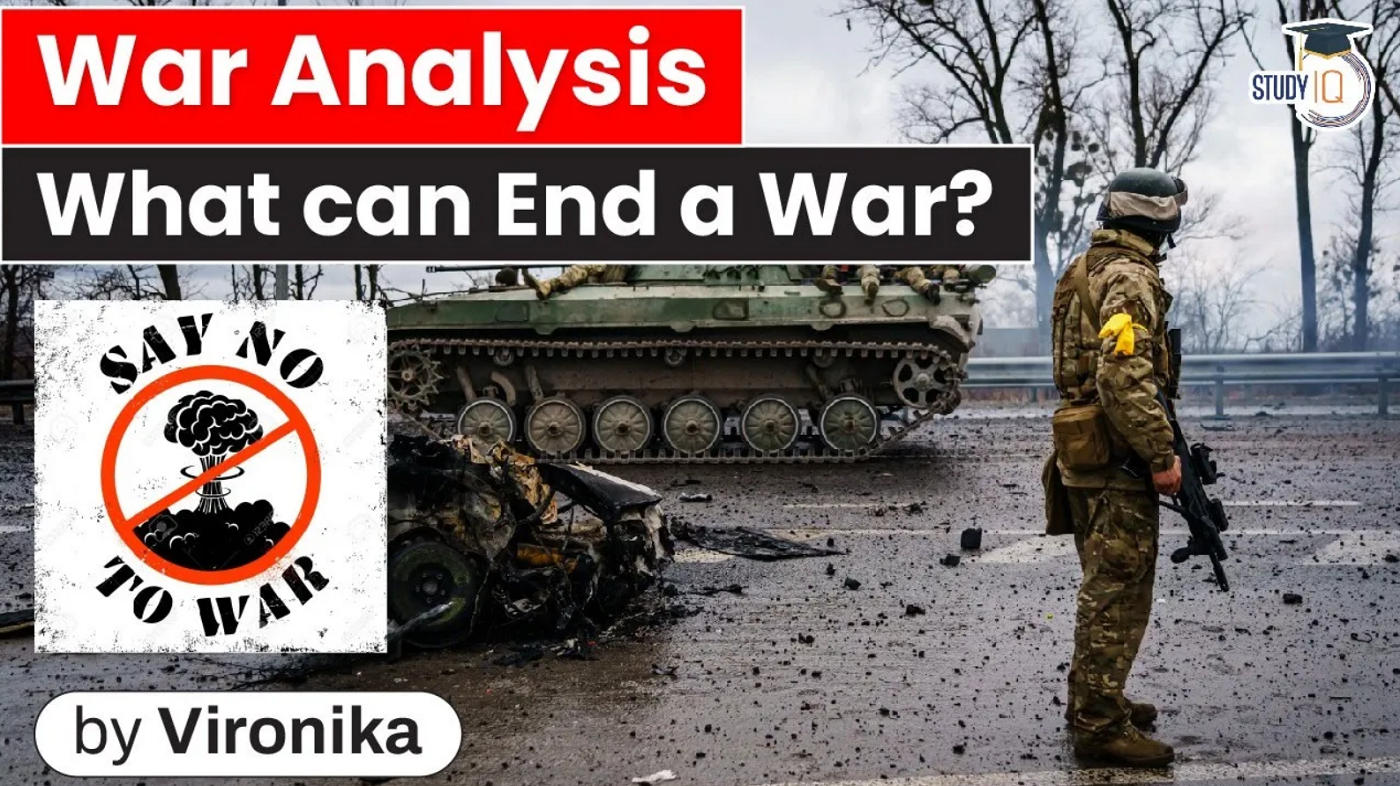Table of Contents
- The fog of Russia-Ukraine war can obscure our view of who is winning, who is losing, and how long all of this will last. While no one can provide definitive answers, academic research on war gives us some insights into how the conflict in Ukraine might unfold.
Full of bargaining
- The path to war resembles a bargaining game, where countries compete over issues like territory and resources to patriotism or the style of governance.
- Rather than going to war, which is very costly, competing states prefer to settle these disagreements peacefully. Ideally, the two sides do this based upon their relative probabilities of winning a hypothetical war. Sometimes this is not possible and war occurs.
Causes of War
- War is, usually, the result of one of three problems.
- First, states might not have enough information to assess their relative probabilities of success.
- Second, the two sides might not trust that an agreement made today will be honoured tomorrow.
- Finally, countries might not be able to settle the contentious issue, especially when ethnic, religious or ideological tensions are involved.
- According to this approach, wars will end when the problem that caused the war is resolved by fighting on the battlefield. How long the fighting will last and the form it takes depends on the extent and type of the problem.
- In the case of Ukraine, it seems that the two sides did not have accurate information about their relative probabilities of success. Success in war is a product of two critical factors: the ability to fight and the willingness to suffer costs.
Army Strength
- It was largely apparent that Russia’s army was and is far superior to Ukraine’s in terms of stockpiles of weapons and number of personnel.
- However, what was not apparent to Russia until the fighting began is that the Ukrainian people are far more willing to fight than they anticipated.
Present Scenario
- Russia now knows that they miscalculated the willingness of the Ukrainian people, but to what extent is still unknown.
- The problem is that it is difficult for Ukraine to demonstrate the extent of its willingness to bear costs, and Russia is likely to mistrust any attempts to communicate this, anticipating that Ukraine will overstate in order to obtain a more favourable agreement.
Costs of war
- The war has already become very costly for the oligarchs and these costs will only increase with time. When a sufficient number of Putin’s coalition privately turn against the war, this will pressure Putin to end the war or risk his position of power.
- However, where this line is and if there are any viable alternatives that would better serve the interests of this coalition is questionable.


- To a lesser extent, Putin is dependent on the support of the general population. The public is bearing the costs of war in the form of inflation, economic decline and battlefield deaths.
- Putin has so far protected himself from these costs in three ways: First, he employs a selective system of conscription, which shields him from the full costs of battlefield deaths.
- Second, he controls the state media apparatus and has censored other media organisations, limiting the information available to the general public.
- Third, since there are not free and fair elections, there is no way other than mass mobilisation and revolution for the Russian people to overthrow Putin.
Cost For Ukraine
- Without a critical mass of support, resistance to the Russian military will fall apart and Ukraine will lose the war. The fierce determination of the Ukrainian people up to this point suggests that this will not occur any time soon.
- As Russian tactics become more aggressive, the Ukrainian people are paying ever higher costs. If we see the average Ukrainian’s willingness to suffer and fight lagging, it should give us cause for concern.


- Russia has told Ukraine it will halt its invasion “in a moment” if Kyiv agrees to give up three key regions.
- Moscow is demanding Ukraine cease military action, acknowledge Crimea as Russian territory and recognize the separatist republics of Donetsk and Lugansk as independent states.
What does Ukraine want?
- President Zelenskyy summed up Ukraine’s aim when he said that his country wants a “fair peace” with Russia. He has insisted the country is not willing to surrender, or accept ultimatums from Russia.
- Ukraine has demanded a ceasefire with Russia, the withdrawal of Russian troops and has said it will not cede any of its territory to Russia.
- However, it’s unclear whether this means it will refuse to recognize the breakaway pro-Russian republics in the Donbas or Crimea as Russian territory.
- An immediate priority for Ukraine has been the creation of humanitarian corridors to allow the safe evacuation of civilians, some of whom have been trying to survive under siege and unable to escape.
- A key concern for Ukraine in recent weeks has been the southern port city of Mariupol. It is surrounded by Russian forces and has been facing near constant shelling while food, water and power in the city became scarce and previous attempts at a ceasefire failed.
- More than 2,500 residents have been killed in Mariupol since the Russian invasion on Feb. 24, according to a Ukrainian official, although the figures are hard to verify.
- Russia has said that it does not target civilians despite evidence to the contrary with the targeting of hospitals and other public infrastructure.

Question:
Which of the following organisation is termed as “a Child of War”?
- UN
- League of Nations
- SAARC
- WHO























 WhatsApp
WhatsApp